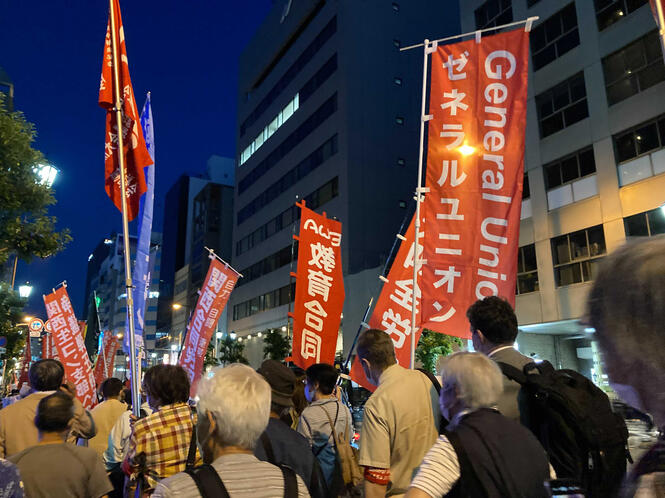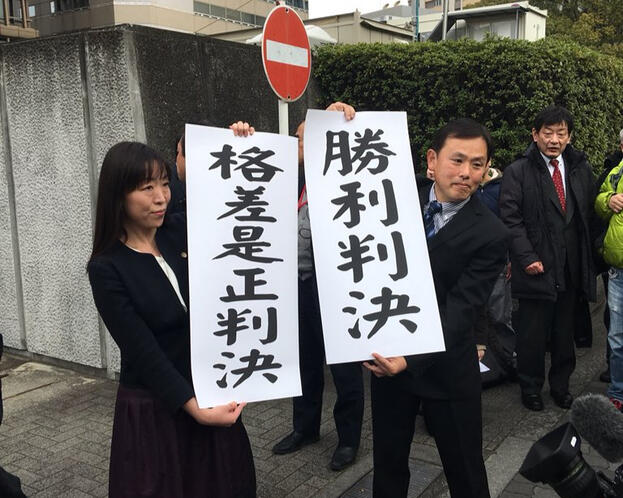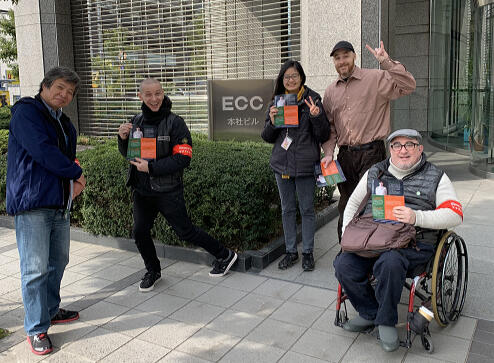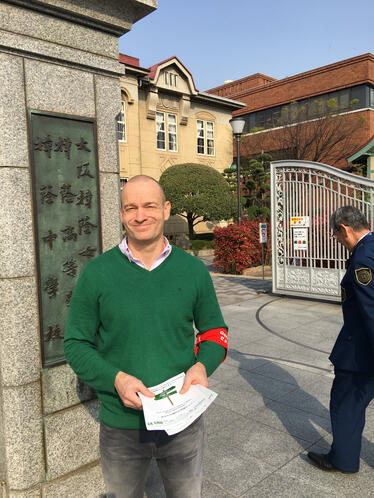Our Survey Results and Symposium
A big thank you to all of you who provided data for our national study of working conditions of ALTs. We’d also like to thank jobsinjapan.com for kindly advertising the survey. The responses of hundreds of ALTs have allowed us to continue to push for reforms in the ALT world.Here are some Key findings:
More than half of direct hire ALTs work beyond their contracted hours
Dispatch make 80% of direct hire/Jets while working similar hours
Almost ⅓ of JETs do not get the breaks that all workers in Japan are granted by law
¾ of JETs view contract limits as unfair
60% of JETs have problems with co-teaching, this may be related to the 50% dissatisfaction with training
Despite increases in working hours, Dispatch ALT wages have not risen. In fact, the largest dispatch company is starting teachers as low as 215,000 a month!
Dispatch companies continue to pay unequally throughout the year
Additionally our Symposium June 26, 2023 Was a huge success. In attendance were members of the Japanese diet, local city councilors and the press. Thank you to those that attended this historic event!
Second Wave Survey
While the first survey showed a lot of the ugly side of declining ALT pay and other broad strokes of the ALT field, we’re still missing a key part of the puzzle: The working and teaching conditions of ALTs. For those in the industry, there are plenty of anecdotes of ALTs being bounced around between schools, having insufficient time to meet with co-teachers, and being forced to change employers because of changing contracts. This is a chance to take those anecdotes and data we can use to transform the industry. So once again, we’re asking for your help. Join us on February 5th 2024 to kickoff the 2nd Wave Survey. Then be sure to fill in and share our survey with your current and former ALT colleagues.
Here's the deal...
Assistant Language Teachers have been in Japan since the 1970s. What began as a handful of participants on government exchange programs has become a system that employs almost 20,000 teachers in positions from kindergartens through senior high schools. These teachers serve under a dizzying variety of job titles, contract types, employers, and work conditions all over Japan.Private companies compete to win the lowest bid driving down salaries and standards. ALTs are left with low pay and often, no insurance. Changes in labor law have disadvantaged directly hired ALTs forcing them into unstable yearly contracts that must be re-interviewed for each year. JET Programme participants are forced out when their arbitrary contract limits expire, despite the fact that labour law changes forbid contract renewal limits.
Private companies compete to win the lowest bid driving down salaries and standards. ALTs are left with low pay and often, no insurance.
Changes in labor law have disadvantaged directly hired ALTs forcing them into unstable yearly contracts that must be re-interviewed for each year.
JET Programme participants are forced out when their arbitrary contract limits expire, despite the fact that labour law changes forbid contract renewal limits.
Lack of oversight and standardization has turned the ALT field into an unorganized race to bottom as salaries remain stagnant and positions increasingly unstable. Seemingly paradoxically, this has been concurrent with rising standards in curriculum leading to increased workload and importance of language teachers.The ALTs deserve decent work and the Japanese teachers and students deserve decent ALTs who deliver quality education.At the end of the day, this will benefit the people we care about the most…our students. A teacher with less worries out of the classroom is one that can focus in the classroom. One of the best ways this can happen is with boards of education hiring ALTs directly, so they can cultivate dedicated groups of teachers. With support like this, ALTs can further themselves professionally. For example, ALTs can get the qualifications to be better teachers, to the benefit of their students.
What does a decent ALT job look like?
At the very least, a decent job is not in conflict with labor law and provides the mandated paid leave, employment insurance, and health and pension insurance due to all who work in Japan.
A decent job has stability.
A decent job provides opportunities for growth.
A decent teaching job follows the standards of other teaching jobs
A decent job has clear goals and expectations.
A decent ALT job would follow labor laws, have stability, provide opportunities for growth, set clear goals and expectations, and provide benefits similar to other teaching positions.
What are we doing about it?
The General Union has been negotiating with boards of education and dispatch companies for the last 20 years. We have gotten ALTs the paid holidays and overtime they deserved and forced employers to enroll teachers on social insurance. We have also made sure that workers had a voice at their workplace when problems arise. We do this for both dispatched and direct-hire teachers by using a type of grievance procedure to rectify problems. The union has also become more involved with direct-hire teachers since the 2020 labor law change that made these workers "civil servants". We've been through a fair number of disputes over BoEs dispatching out jobs that used to be direct hire.Our main push now is to work with government ministries to get some kind of ALT national standards for both working conditions and the quality of education. We can only do this by working together - dispatch, direct-hire, JET - to stamp out poor working conditions in the whole ALT industry. We're all in the same boat and all deserve the same high standard of working conditions and respect on the job
A big thank you to all of you who provided data for our first ever national study of working conditions of ALTs. The survey ran from June 27 to 31 March. With over 600 respondents we can use the survey to push for reforms in the ALT world. Already a number of local and national politicians as well as the press have taken a lot of interest in this work. We will be releasing some data bit by bit, but we will also hold a symposium on this in late June. Details will follow. Also, a big thanks to www.jobsinjapan.com for advertising this survey for us. Their help was priceless.
With love from your friends at the General Union.





